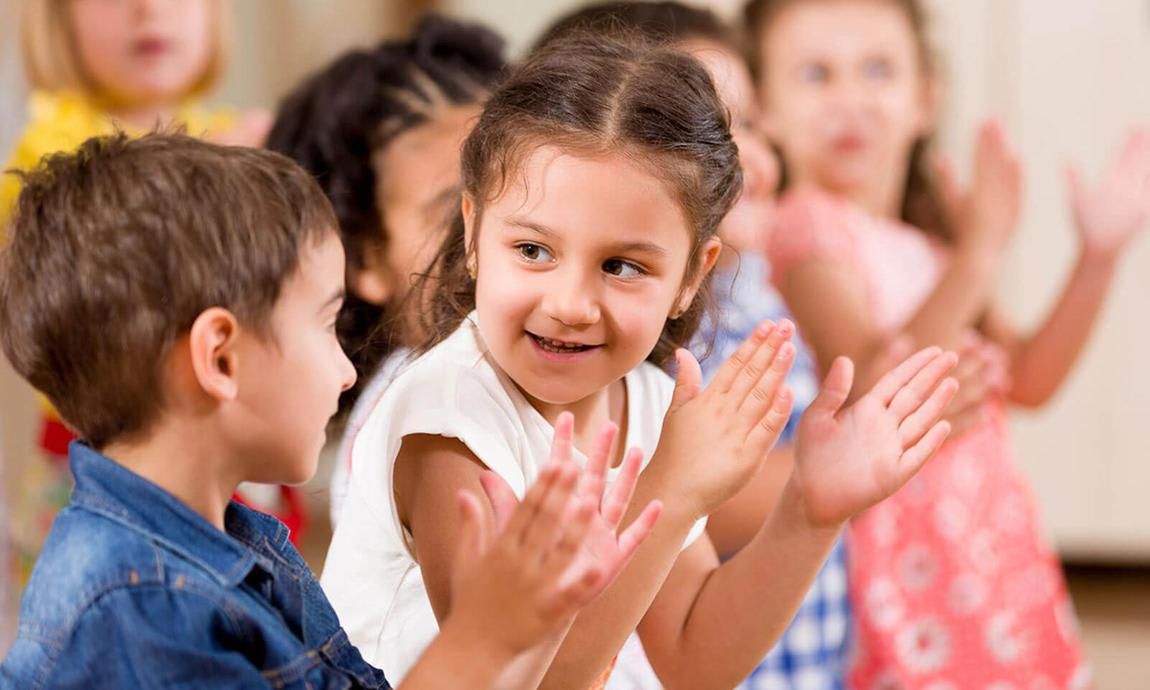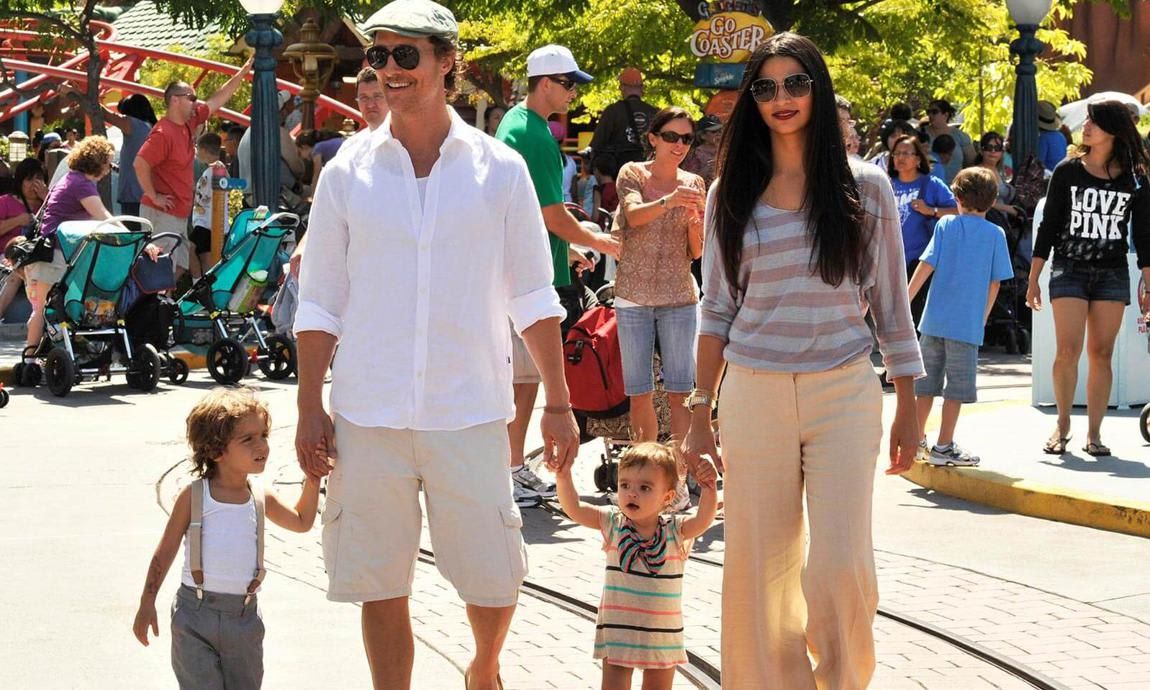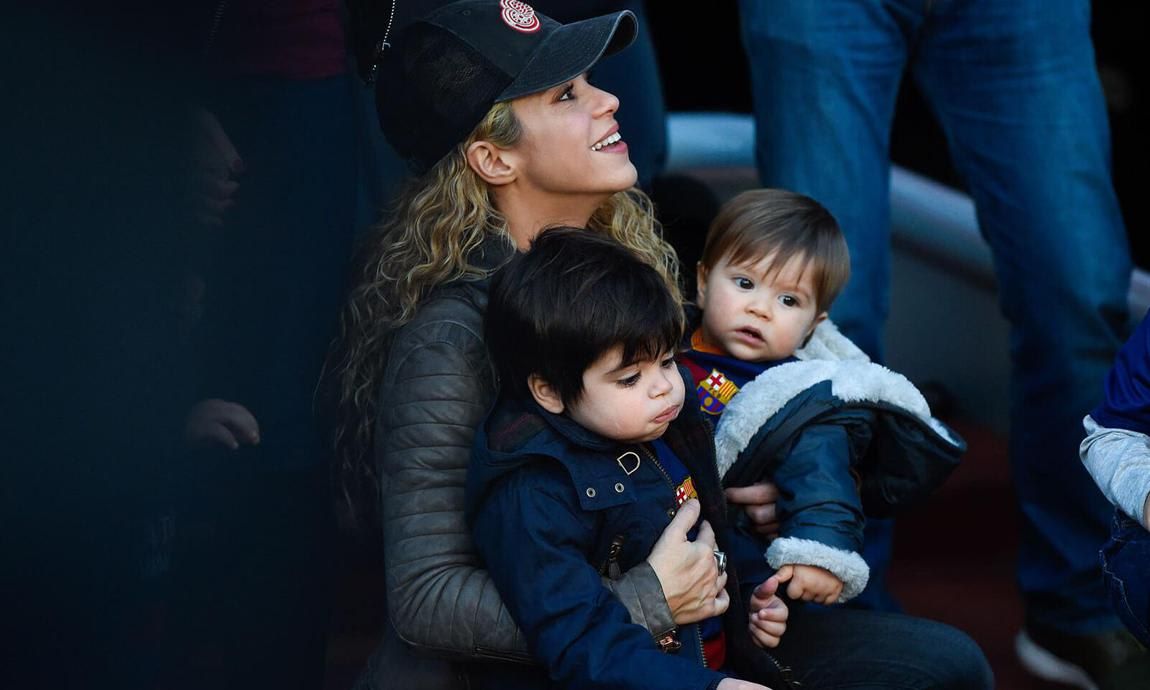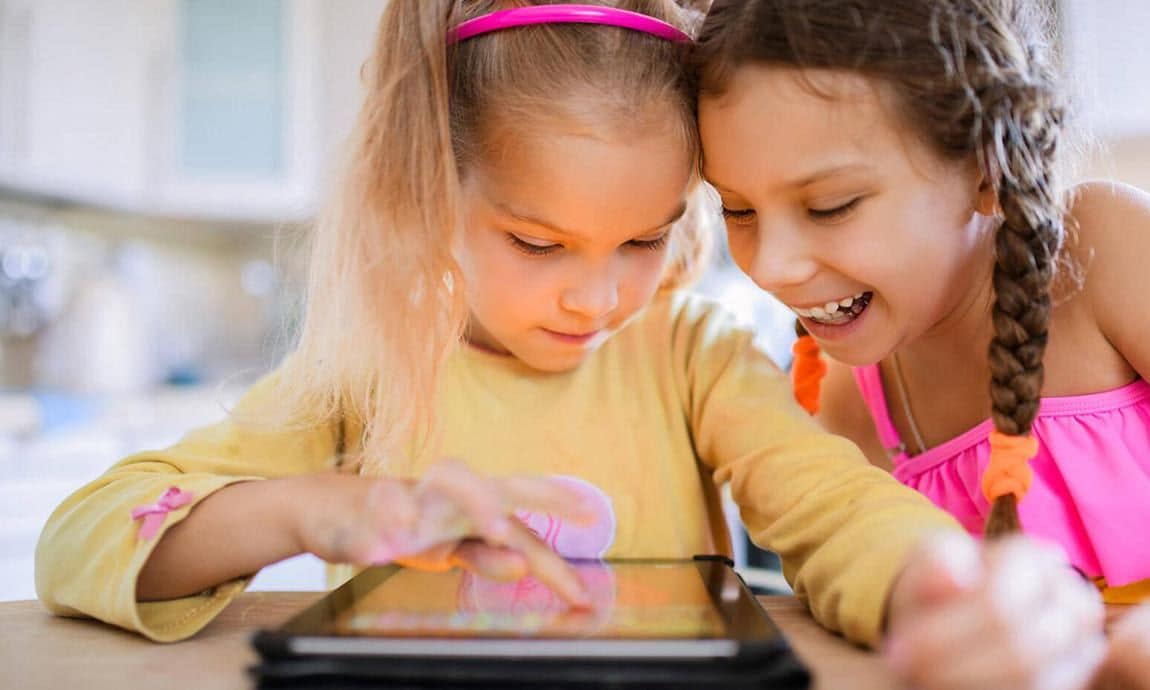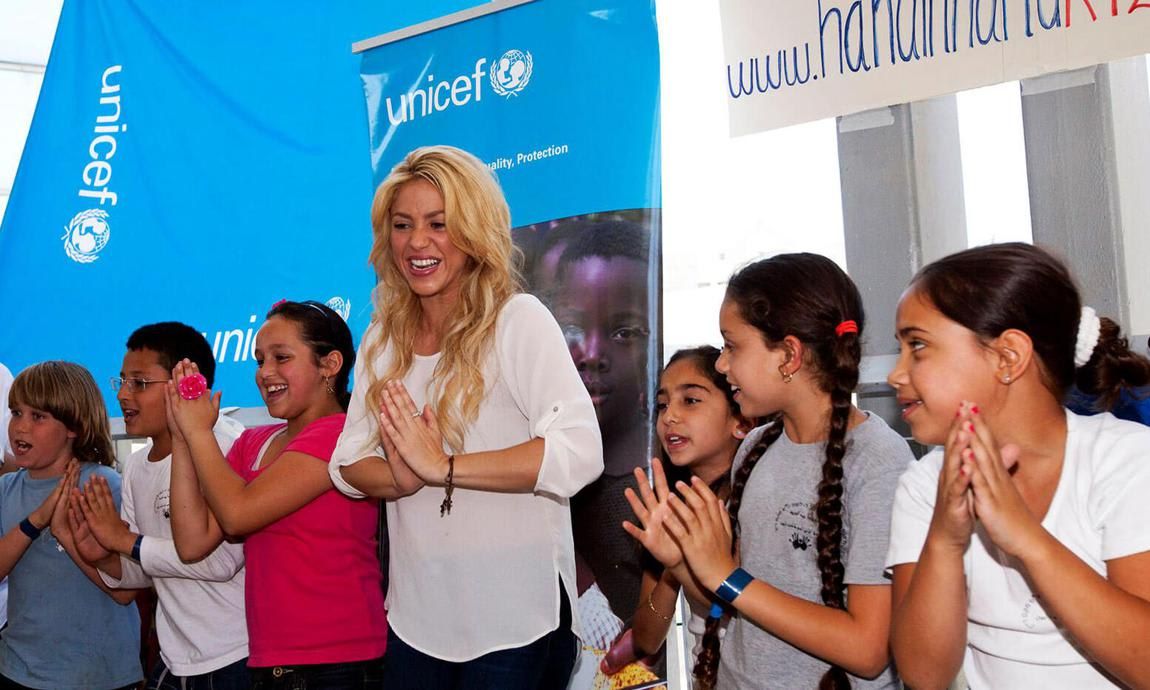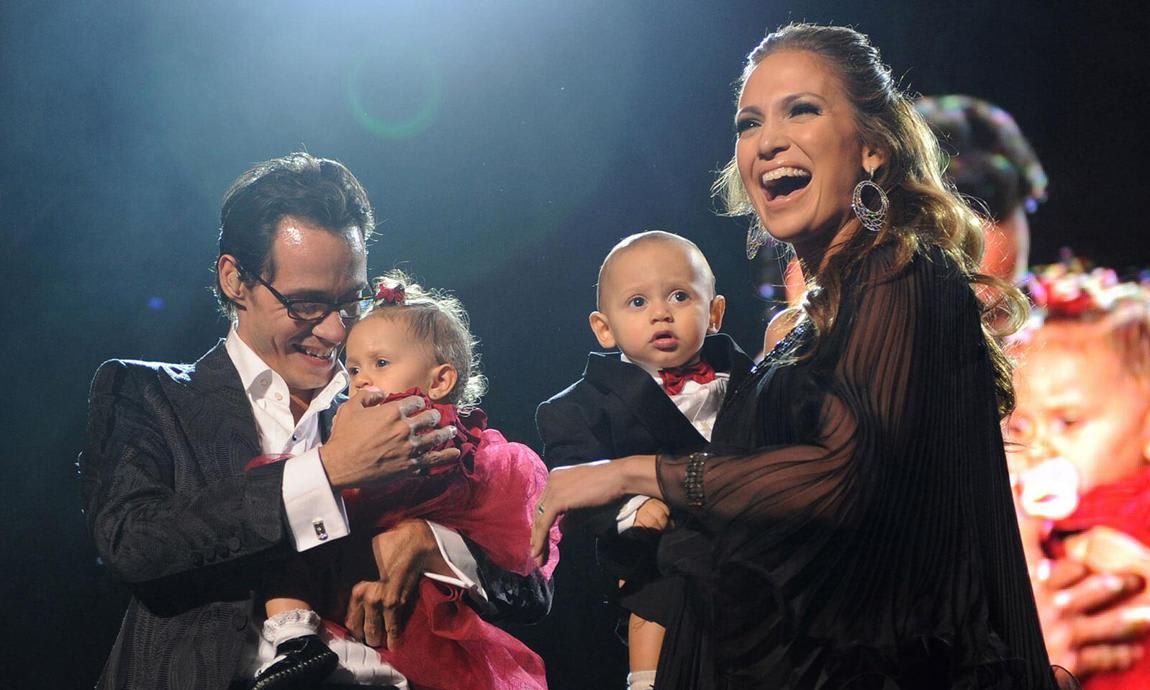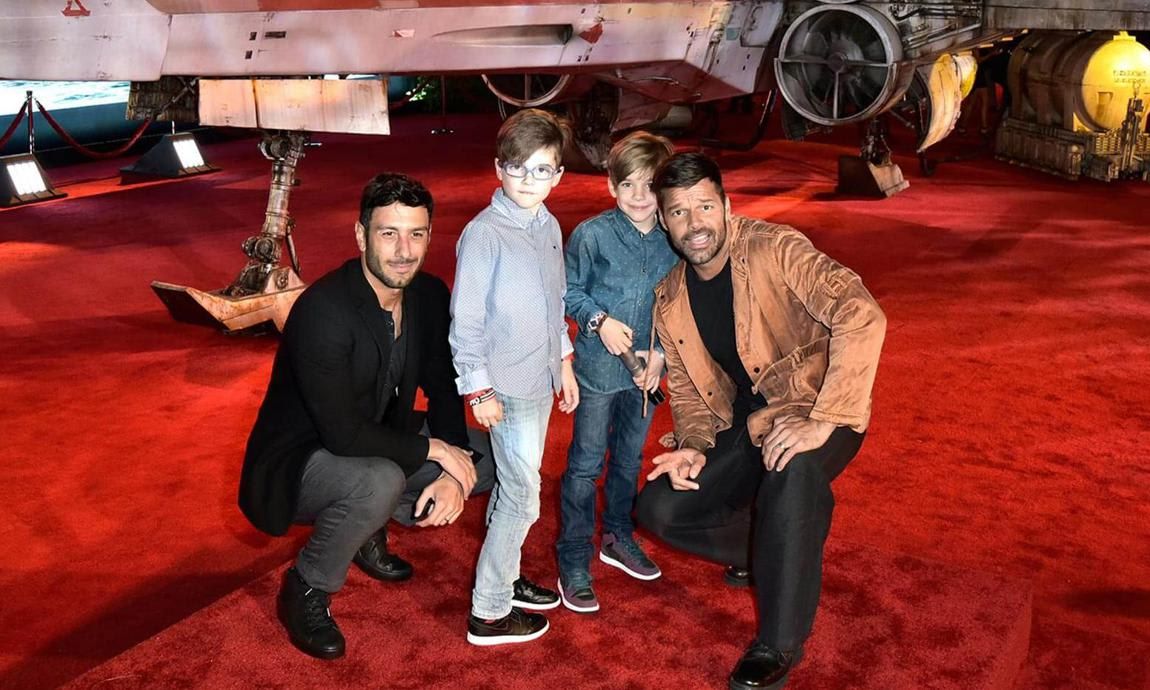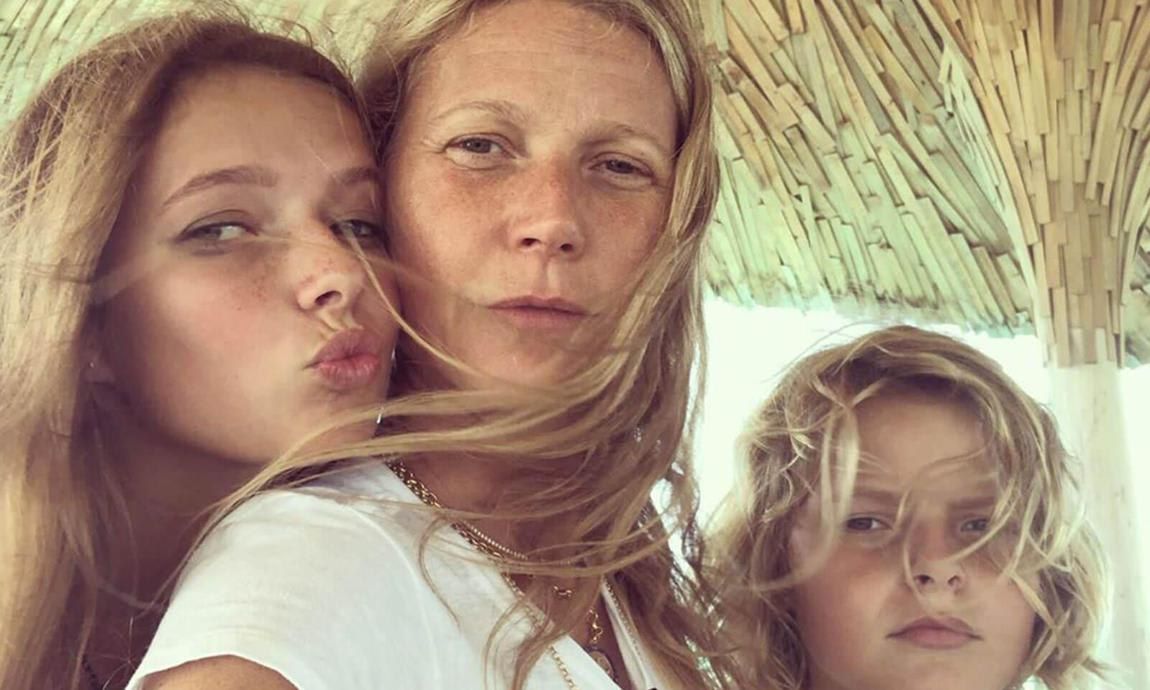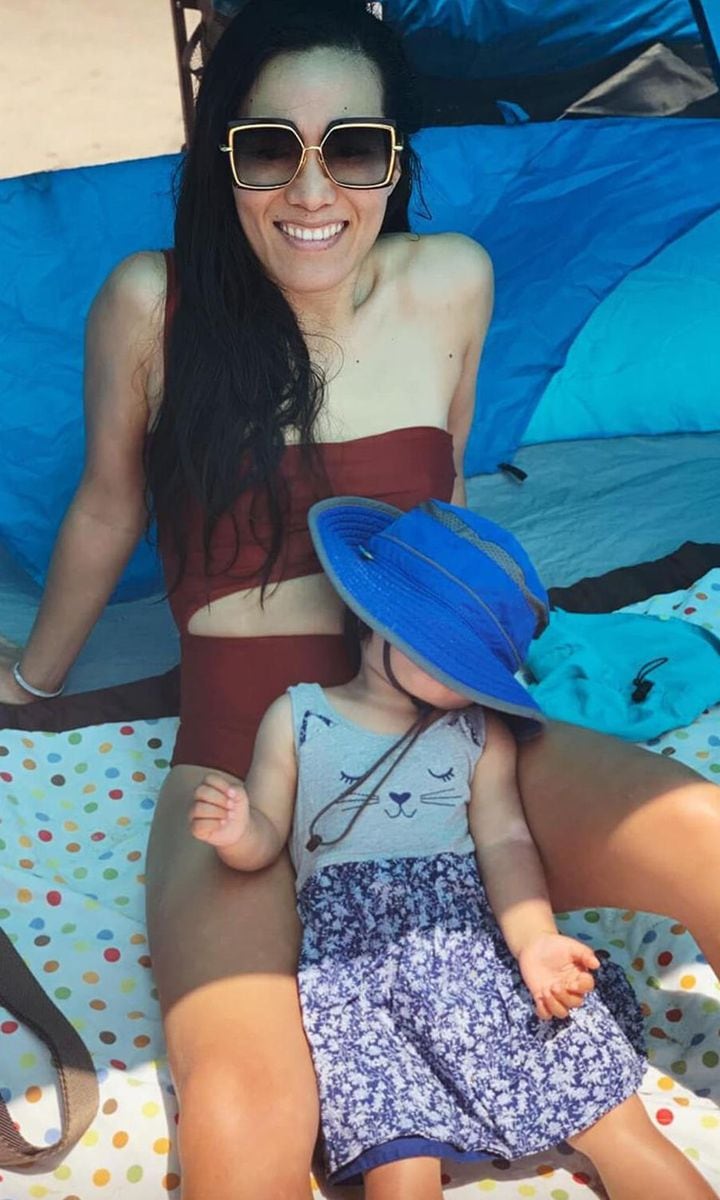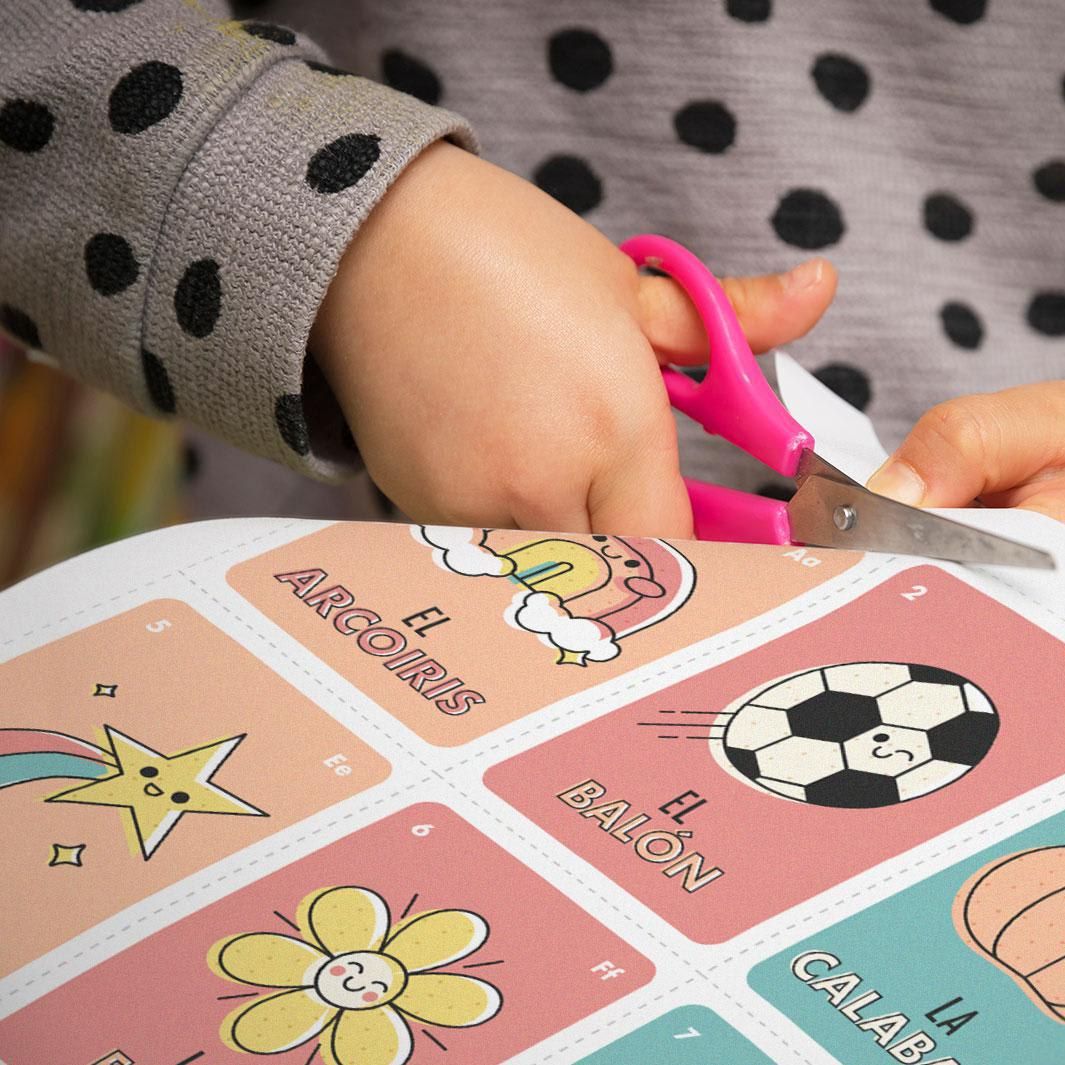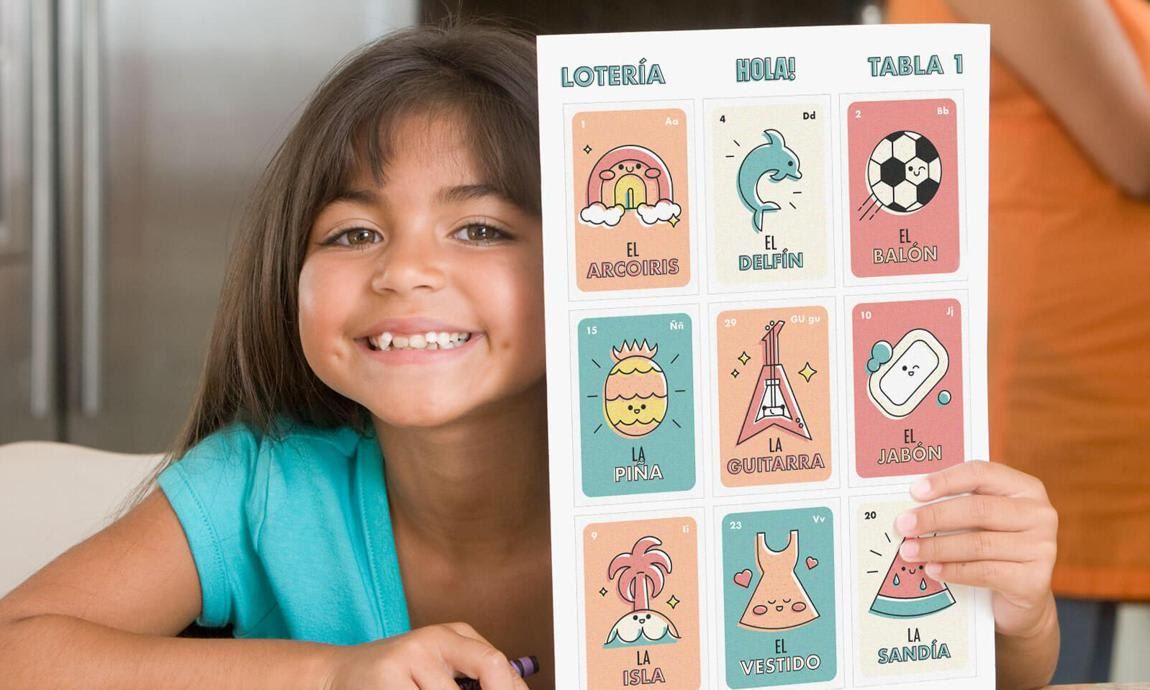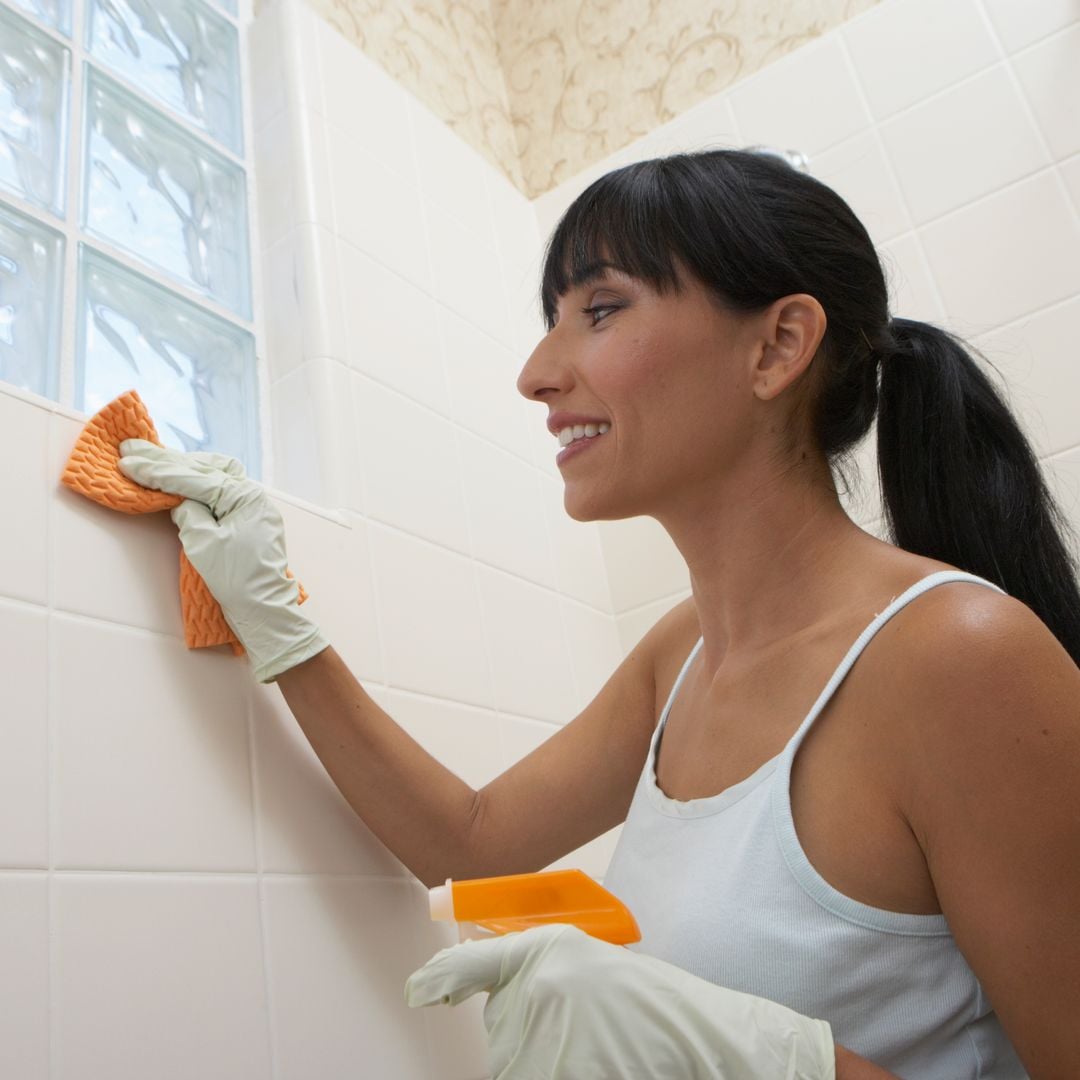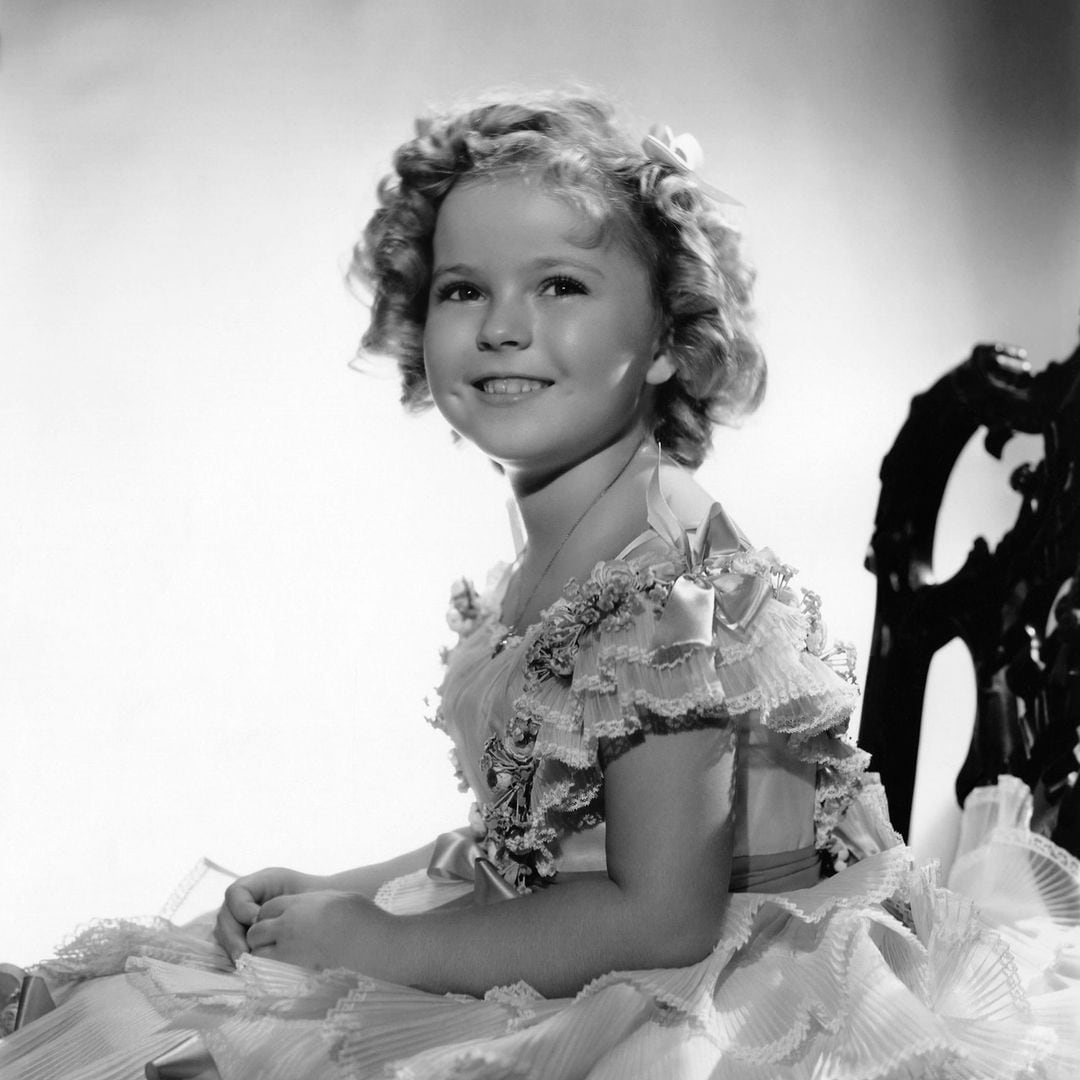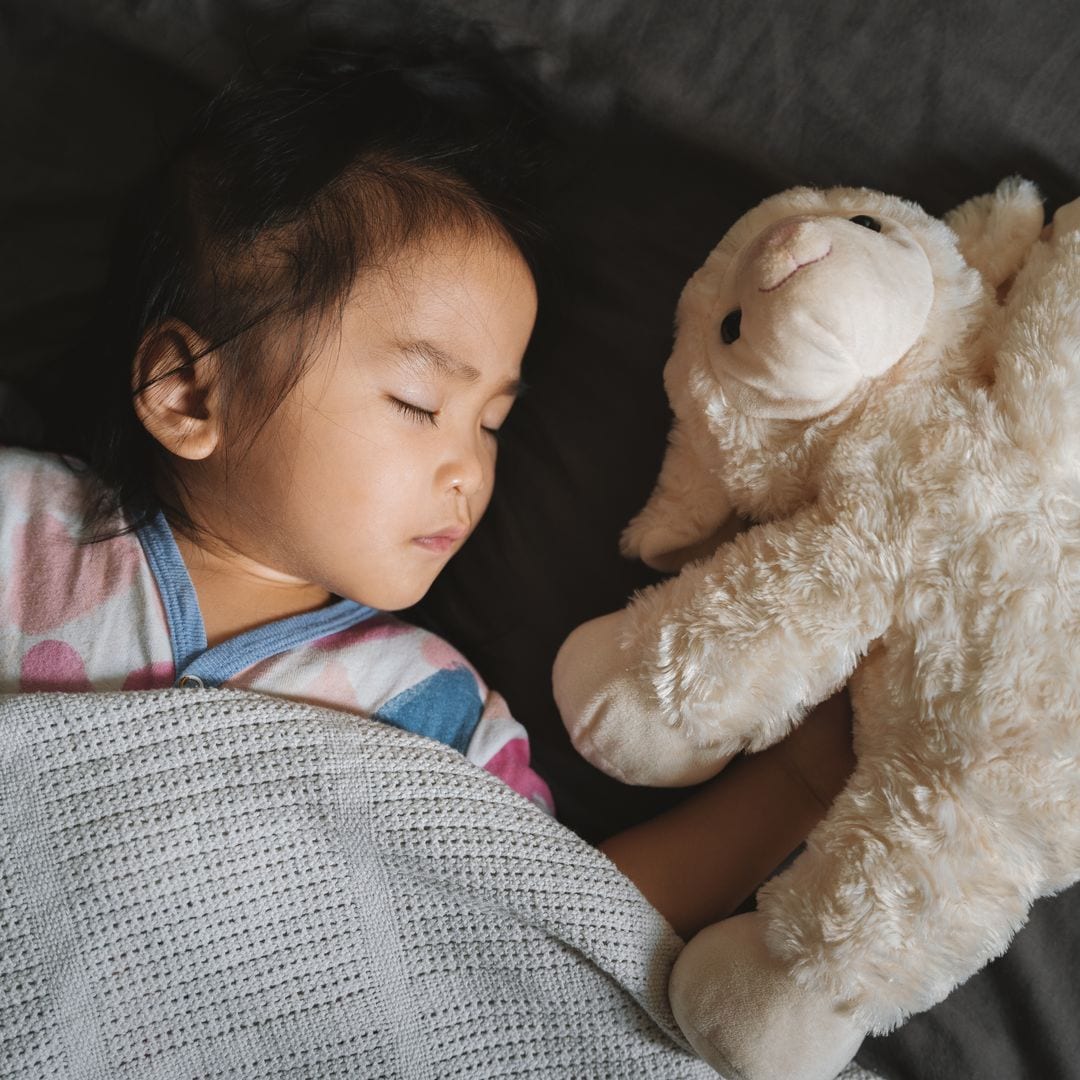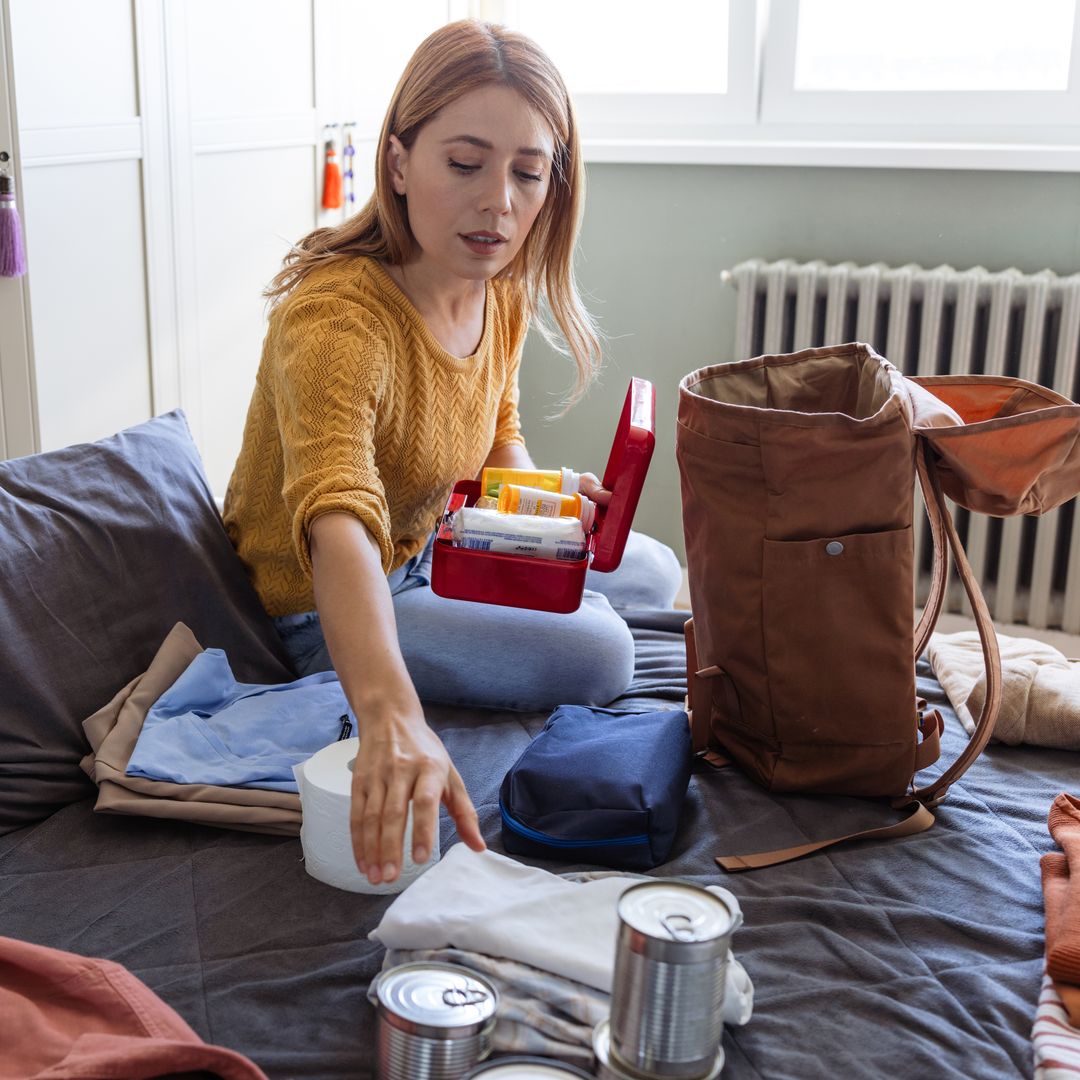When you live in a country outside of the culture and traditions you grew up with, it’s important to encourage your kids to connect with their family’s heritage and traditions. And language is one of the first and most important steps.
There are many advantages to raising bilingual children. It not only helps them keep in touch with their culture, but speaking Spanish or any second language has proven to have many social, educational and even health benefits. It’s no wonder many bilingual parents, including some of our favorite Latinx celebs, make it a point to raise their kids speaking their native tongue.
Although a difficult endeavor, the outcome is well worth the effort so we thought we’d round up some of the best tips to help raise your kids bilingual. If you’re looking for ways to make learning a new language fun, check our Spanish flashcards and Lotería boards below. These are sure to motivate your little one and help them feel comfortable with the alphabet and basic Spanish words.
THE BENEFITS OF RAISING YOUR KIDS BILINGUAL
Although you can probably find dozens of benefits of being bilingual, below are some key advantages we found that, as parents, might make you proud of the fact that you chose to raise your kids speaking their culture’s native language.
Raising open-minded kids
Knowing a second language can help your kids see the world through different perspectives and become more adaptable to changes. Since they grow up communicating and engaging with different cultures, including their own, bilingual or multilingual children tend to be more open to different points of view and new experiences as well as more understanding and appreciative of cultural differences.
Educational and health advantages
Studies have found that bilingual children, although they can take longer to learn new things in their first few years of school, often excel over their monolingual classmates by the age of 7. Other studies have also suggested cognitive benefits to bilingualism. Children who speak a second language tend to get distracted less and be more focused on their tasks.
Although old age might seem like a long time from now for your kiddos, teaching them a second language can have some long-term benefits on their health. For instance, evidence suggests speaking two or more languages can delay symptoms of diseases like dementia and Alzheimer’s.
Makes it easier to learn more languages
Learning a second language could facilitate learning a third language later in life. For example, bilingual speakers of Latin-based languages often point out that it’s easier for them to learn or even understand another Latin-based language due to their similarities. It can also help their understanding of different sentence structures and tenses, which can promote fluency. Camila Alves recommends finding some type of support system to help children learn another language, such as relatives or friends that speak the language.
More job opportunities
Depending on the language, many companies prefer or prioritize hiring people who are fluent in a second language. This article points out how demand for bilingual workers has doubled since 2015. Although learning any new language can be beneficial, languages like English, Chinese, Spanish, French, Arabic and German are in high demand for employers.
TIPS ON HOW TO RAISE BILINGUAL CHILDREN
When encouraging your kid to speak a different language at home, it’s essential to make it just as enjoyable as it is educational, and most importantly, to have patience. Below are some quick and easy tips that will help your efforts have the greatest impact.
Speak the language at home
Whether you speak your ancestors’ language or want to learn it as well, make an effort to speak it at home. This is the best and easiest way to immerse your kid in the language and help them become fluent in no time. Children who speak a second language at home and supplement it with reading, a class or a bilingual curriculum have an easier time learning both formal speech and vernaculars of that language, which can help them achieve fluency much faster.
Entertain in the second language
Another easy and budget-friendly tip is to provide your child with plenty of entertainment in the second language. Whether it’s TV shows, games, music or books, hearing it and reading it through various sources will help them with speaking, understanding and pronunciation.
Secure bilingual childcare or curriculum
Many schools offer bilingual or even multilingual curriculums. Look for schools in your area that can help supplement the language(s) you’re teaching your children at home. If your kid is still very young, look for childcare options that can promote their learning. Whether it’s a babysitter, daycare or their grandparents, being exposed to the second language at an early age will develop great listening and comprehension skills.
Involve their community
Psychologists often claim children can forget their native language or the language spoken at home when they start school. This can be due to disuse of their first or native tongue and their need to fit and communicate with their friends.
To avoid this, make sure their community also involves people who speak your native or second language. Arrange playdates, book clubs or plan trips to places influenced by this language and culture to help them build connections.
CELEBRITIES RAISING BILINGUAL CHILDREN
Whether they’re monolingual or bilingual themselves, many celebrities are choosing to raise their kids speaking two or more languages to help them connect with the roots and culture. Below are some ways these celebrities are going about it to give you some ideas on what you can do at home.
Jennifer Lopez
While still together, JLo and Marc Anthony decided to enlist the help of their nanny to raise Emme and Max bilingual. In an interview, JLo revealed that their nanny spoke to them strictly in Spanish, while her and Marc spoke to them in English. If you’re in the process of hiring a full or even a part-time babysitter, look for someone who can speak to them in the second language you want them to learn.
Ricky Martin
The father of two has mentioned before that he chose to raise his adorable kiddos trilingual. By speaking to them in Spanish at home and enrolling them in a French and English school, Valentino and Matteo are sure to grow up into two worldly, open-minded adults.
As we mentioned above, look for schools with bilingual curriculums and supplement their learning at home.
Jessica Alba
Although growing up monolingual herself, Jessica Alba wanted her daughter, Honor, to appreciate her Mexican roots. To make sure the little one grew up bilingual, Jessica hired a Hispanic studies professor to help her and Honor learn the language together. And now that she has Haven, we’re sure she’s being raised bilingual as well.
Gwyneth Paltrow
The actress and businesswoman learned to speak Spanish as a teenager while traveling and living in Spain. Gwyneth Paltrow’s love of the language and culture has helped her raise her kids, Apple and Moses, bilingual by encouraging them to speak Spanish to her and each other.
Ali Wong
Baby steps is all it takes to motivate your kids to learn a new language and Ali Wong is well aware of that. The comedian can be seen on her Instagram reading to her daughter in Spanish and encouraging her to read along.
FUN GAMES TO ENCOURAGE LEARNING
The easiest way to get your kids motivated and excited to learn and speak their culture’s native language is by making it fun. Use plenty of positive reinforcements including praise, treats, playtime and prizes when they learn new words or take initiative. Below are two simple, yet fun games to start their language learning journey.
Spanish flashcards
This tried-and-true method is the easiest way to get them started. Since there are plenty of themes to choose from, we suggest going for something simple like an alphabet, animal or family themed flashcard deck. Use these cards to play fun games like charades, spelling bees, loteria or make up your own! Download the flashcards here.
Spanish lotería/bingo
The classic Mexican game, Lotería or “Spanish Bingo,” was actually first used as a teaching tool for writing, reading and social or religious values. Today, it’s mostly used as a fun family game that can easily be applied to any topic and language.
To help, we created these printable Spanish alphabet flashcards and lotería boards. To play, simply call out each card and have your little ones mark off the ones being called out. In certain regions of Mexico, the caller calls out the item and then uses it in a sentence, which can be helpful as your kid learns these words. You can download the lotería boards here!
Learning a new language can be hard and intimidating but the earlier you start teaching your kids, the easier it’ll be. Whichever approach you take, speaking two or more languages is an asset your kids are sure to find useful throughout their lives, and one for which they’ll thank you one day.
,type=downsize)

